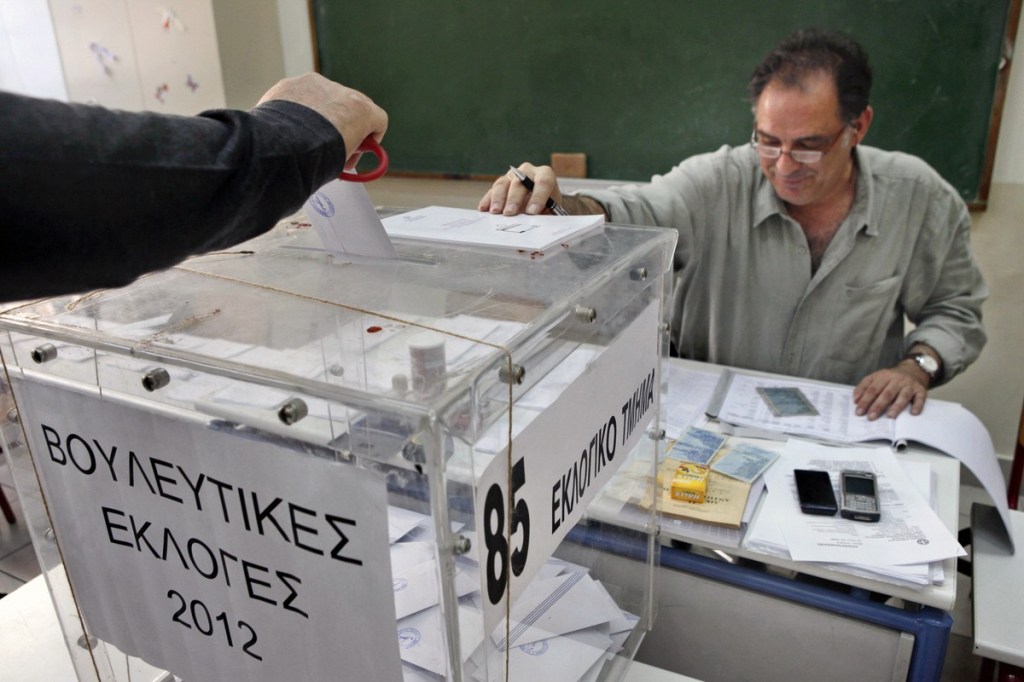
Pull quote: “If EU leaders decide to take such bold step, Greece would be compelled to bring back its Drachma, which analysts predict would deeply plummet in relative value to the Euro if Greece were to exit the Eurozone.”
Europe holds its breath awaiting the outcome of the Greek elections that may very well determine the country’s future vis-à-vis the Eurozone. Between a rock and painful austerity measures, the result of this election will undoubtedly ripple throughout Europe and the entire global financial market.
The pain and frustration brought upon by the considerable spending cuts Greece has been undergoing acted as a strong catalyst in steering voters away from proceeding with the EU’s austerity program, risking ejection from the Eurozone.
This economic limbo has triggered a wave of anxiety among EU leaders, which manifested in calls for emergency talks to discuss the impending catastrophe that would result should the vote go against the EU’s stipulated austerity program, a decision described by historian Niall Ferguson in the Guardian as “the financial equivalent of the Cuban missile crisis”.
German Chancellor Merkel, alongside a number of EU leaders, has been relentlessly calling on member states (Greece in specific) to respect international commitments so as to steer the Eurozone out of an incipient financial disaster.
On the ground, Greece is detrimentally polarized. On one end stands Alexis Tsipras, head of the radical leftist Syriza group, spouting strong rhetoric against the cutbacks in government spending, vowing to put an end to the bailout deal. He explains that Greece’s rejection from the Eurozone is highly unlikely given the repercussions the decision would have on other EU indebted members such as Italy and Spain.
In line with the EU’s plan is the leader of the Conservative New Democracy party Antonis Samaras, calling for the renegotiation of the bailout terms and conditions, stating that Greece “will exit the crisis… will not exit the euro [and] will not let anyone take us out of Europe.”
If EU leaders decide to take such bold step, Greece would be compelled to bring back its Drachma, which analysts predict would plummet in relative value to the Euro if Greece were to exit the Eurozone. This scenario will create the perfect milieu for inflation to skyrocket and unemployment to surge, along with difficulties in importing oil and other necessary goods.
On the regional level, European banks are preparing for a crippling blow. The crisis is expected to cross the Atlantic due to the intricate web of contracts, loans and other financial transactions that tie European banks to those in the U.S. Greece’s exit from the Eurozone will have an immensely negative impact on world economies due to the cohesive and interconnected nature of the global market.
Against the backdrop of an already volatile global currency market, the price and status of the Euro after election results will become somewhat capricious, casting a dark cloud of angst and ambiguity. On election day, markets in the Europe and the US reported index tumbles; the Dow Jones index dropped 1.08%, Germany’s Dax was down 1.95%, France’s Cac lost 2.8%, while Spain’s Ibex dropped 0.8% and Italy’s FTSE MIB closed 2.37% lower. This came after the Athens stock market lost 3.6% to close at its lowest level for almost twenty years.
Greece’s chance in finding room to wiggle through such fiscal impediments without defaulting is contingent on the results of the election, the aftermath of which will resonate through the entirety of the global financial market.



